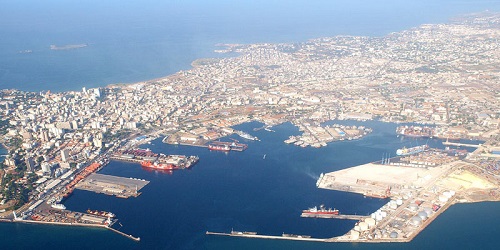The Senegalese are delighted to be safe from 3,050 tons of ammonium nitrate removed from their port.
The same substance at a slightly lesser volume caused the explosion in Beirut last month that killed at least 190 people, injured thousands and caused extensive damage.
After the Beirut explosion, countries with ports have been scrambling to be sure they are not in a similarly vulnerable situation.
“To date, no ammonium nitrate is present at the port of Dakar,” said the statement issued yesterday by the port’s communication department, adding that the evacuation of the dangerous material was completed Tuesday.
Senegal’s President Macky Sall two weeks ago called for the ammonium nitrate, used to make fertilizers and explosives, to be removed immediately and safely.
He also told the environment and interior ministers to implement a national plan for the inventory, auditing and securing of depots storing dangerous chemicals.
Port authorities confirmed that the material, which had been at the port for about a month, has been trucked to Mali.
Despite a recent coup d’etat and sanctions imposed by the West African Regional Bloc, ECOWAS, about 20 trucks a day, carrying 30 tons each, were escorted by gendarmerie to Senegal’s eastern border with Mali.
Mali’s ministry of transport has said that the substance is intended for use by Malian mining companies in its quarries.
In a statement last week it reassured that the transport of this dangerous substance is done in strict conformity with regulations.
The minister talks about how more than 21,000 tons were moved through Dakar port into Mali, In 2019. This year there are plans to move more than 12,700 tons.
Dakar’s port authorities have said they adhere to international rules for the storage and management of dangerous materials.















